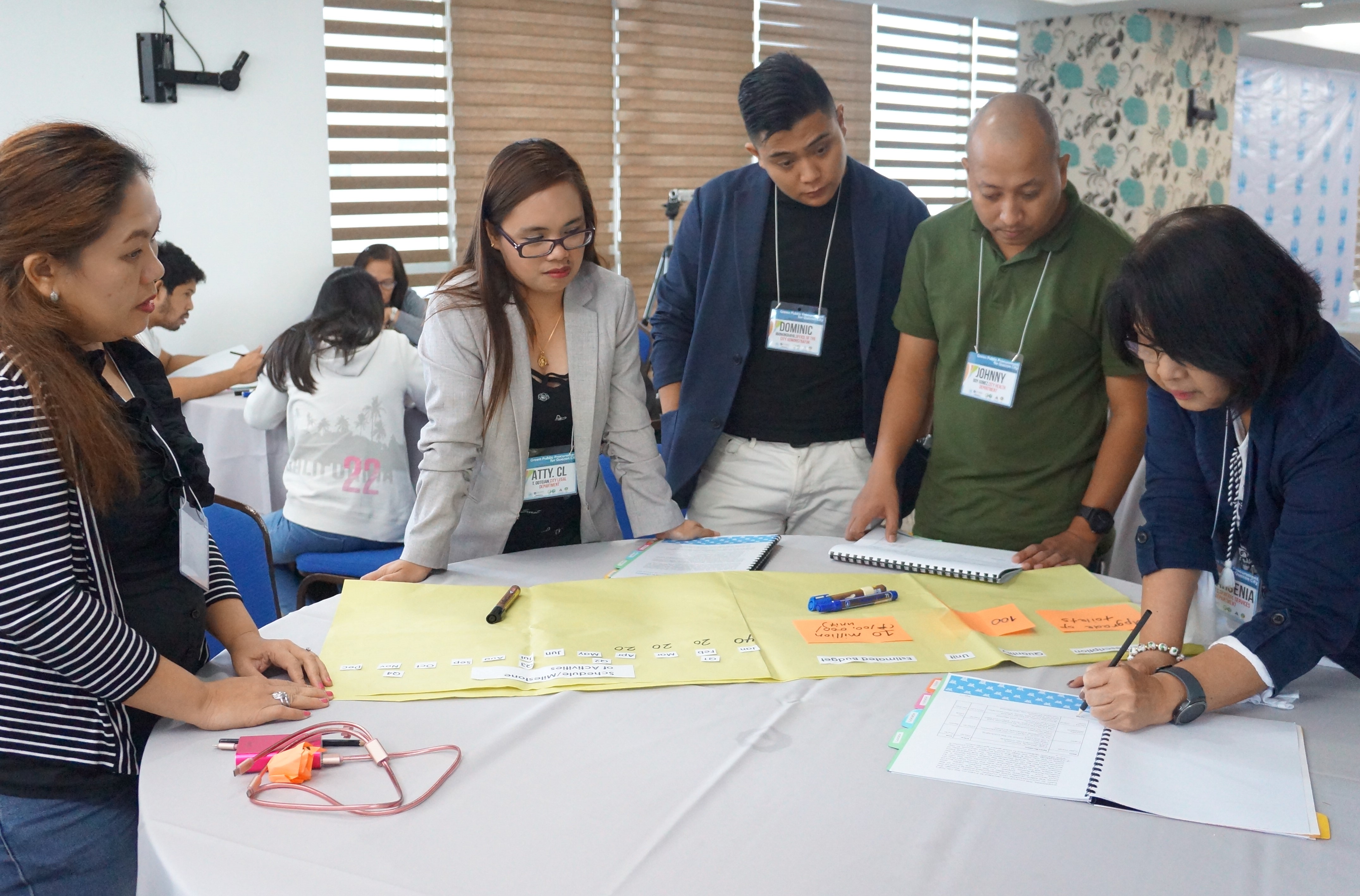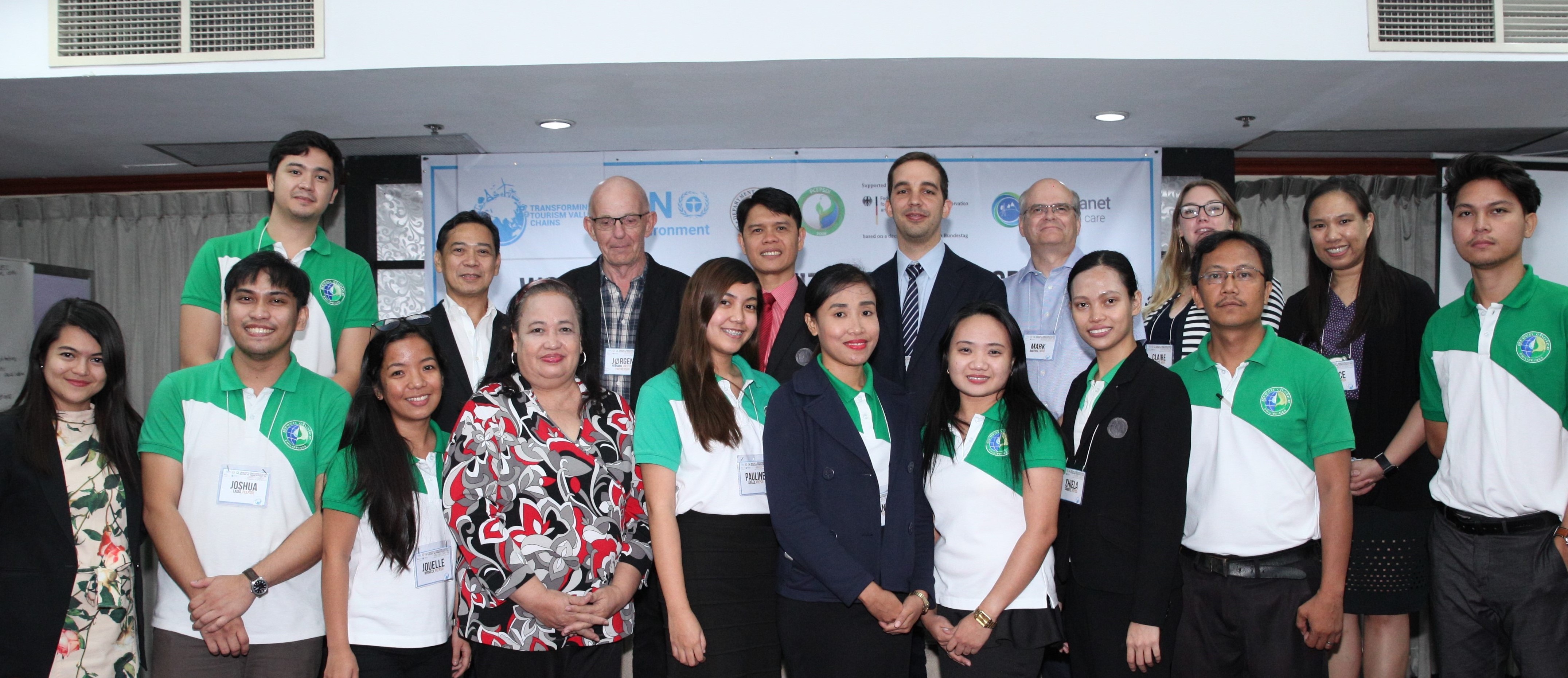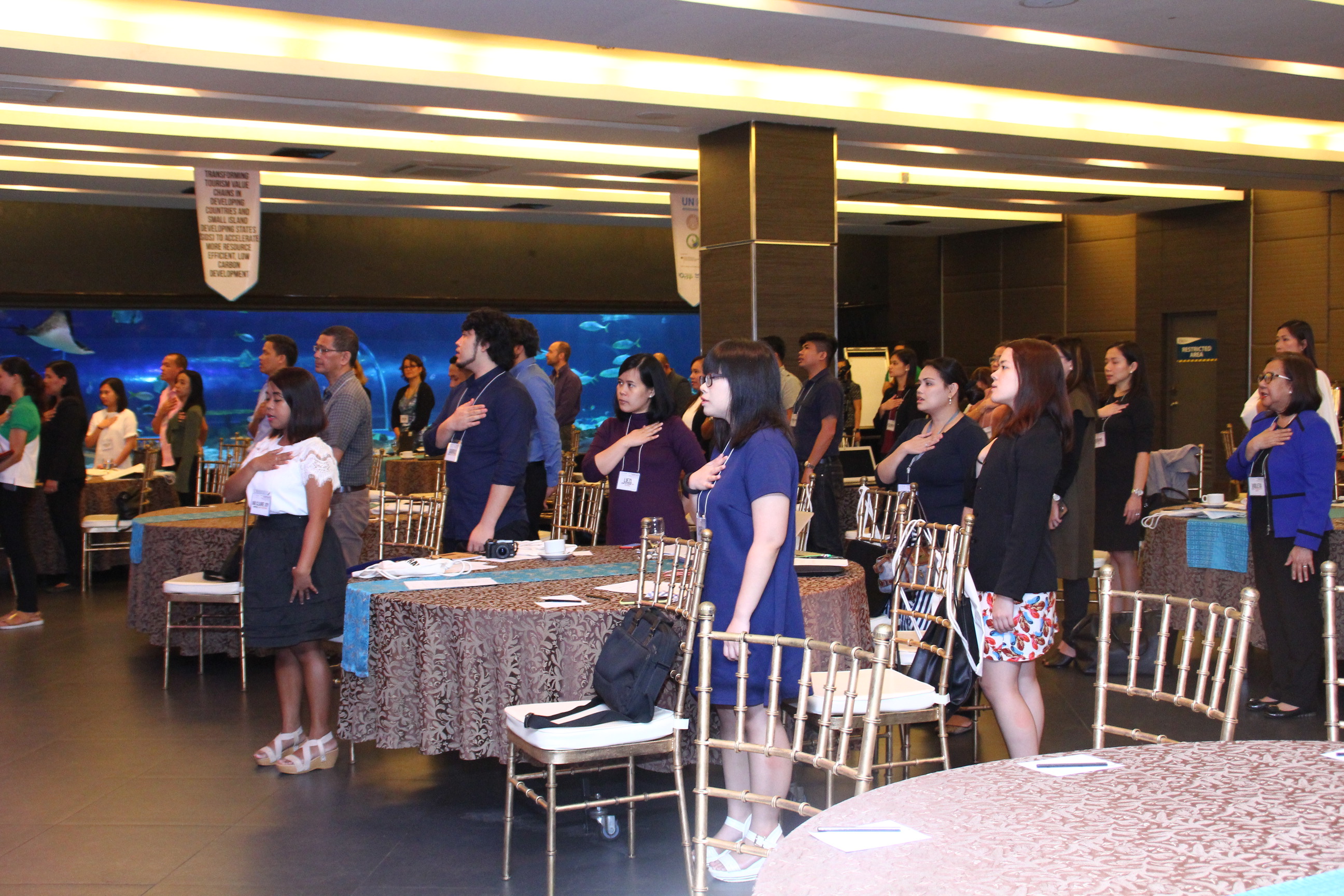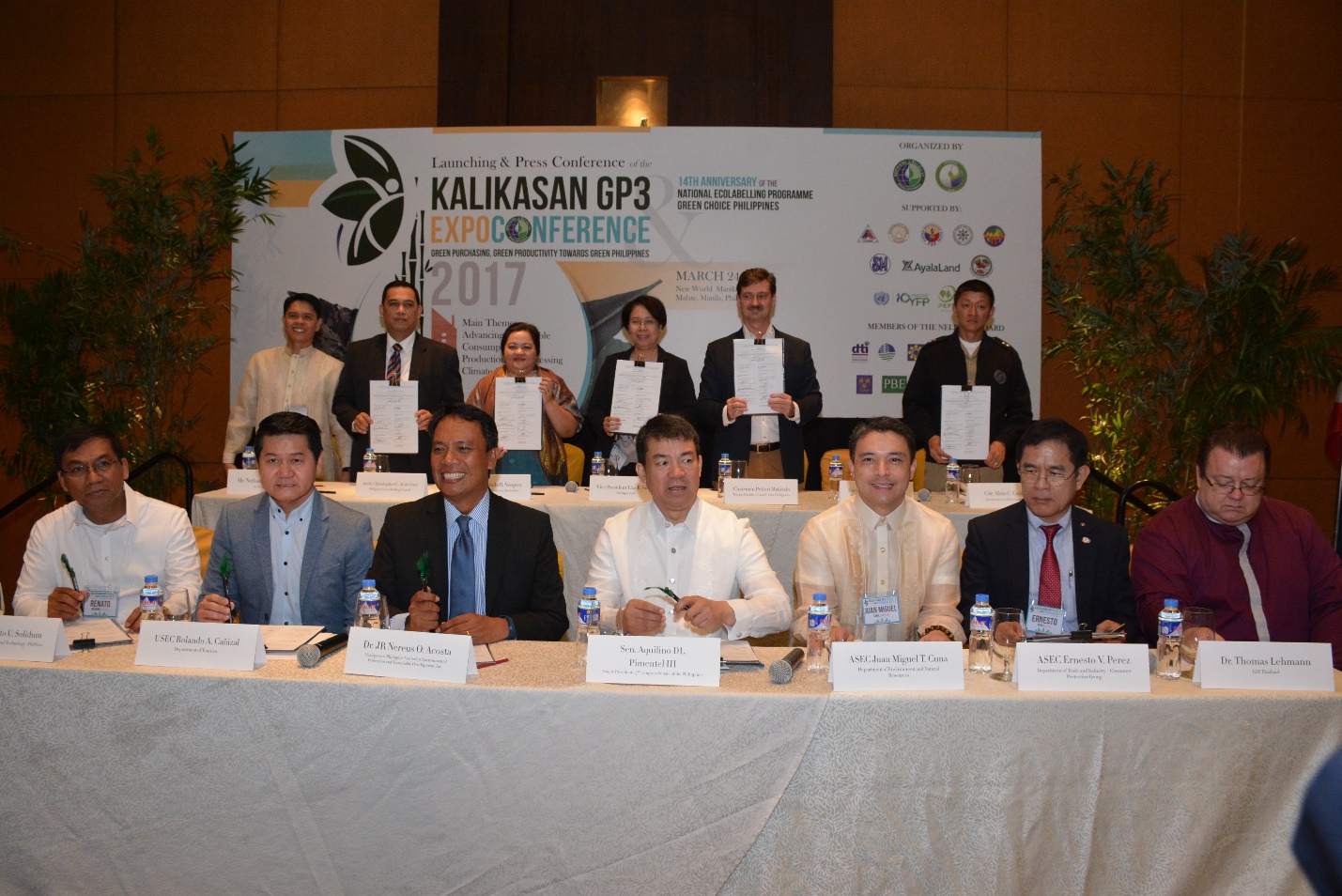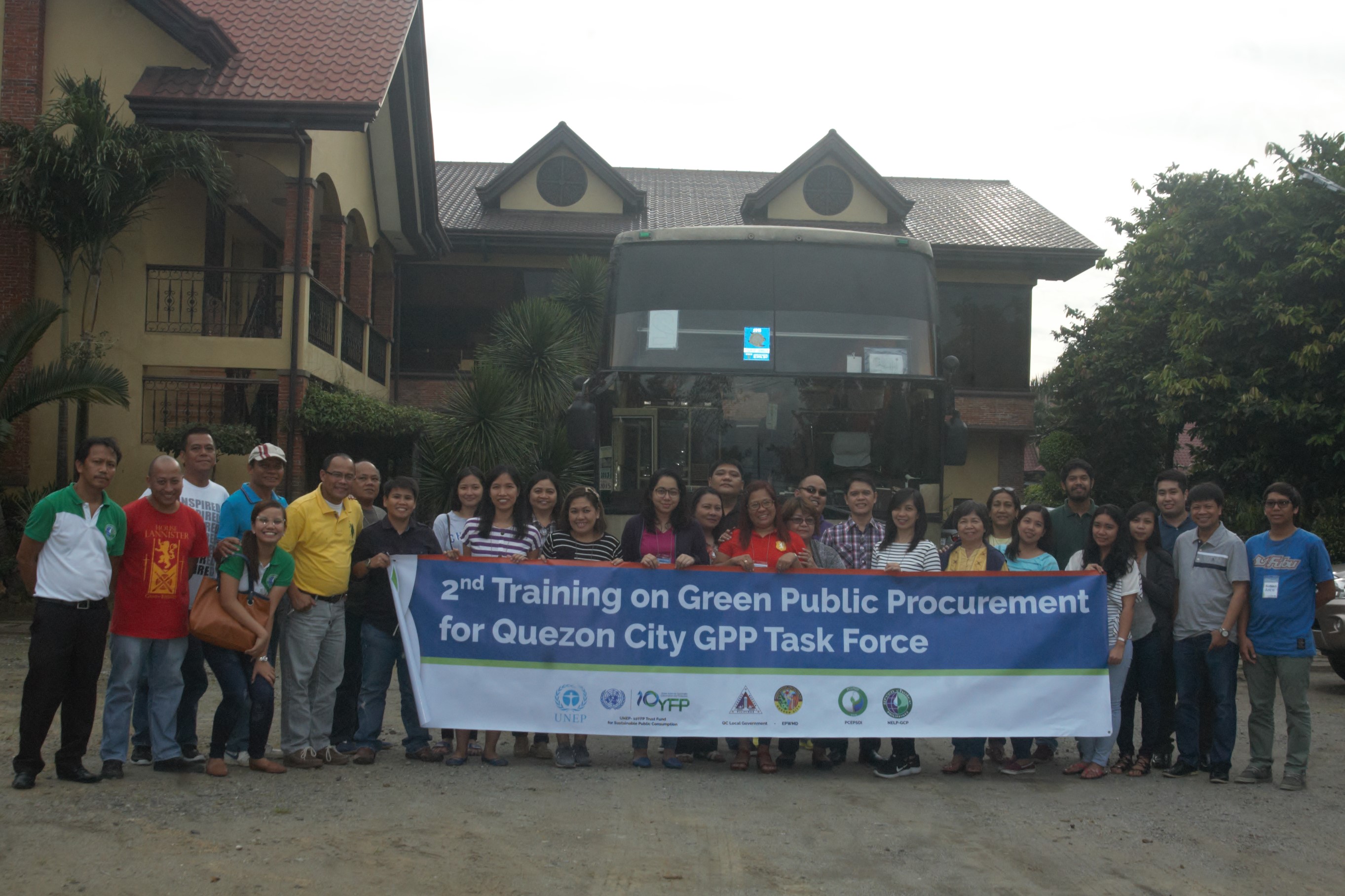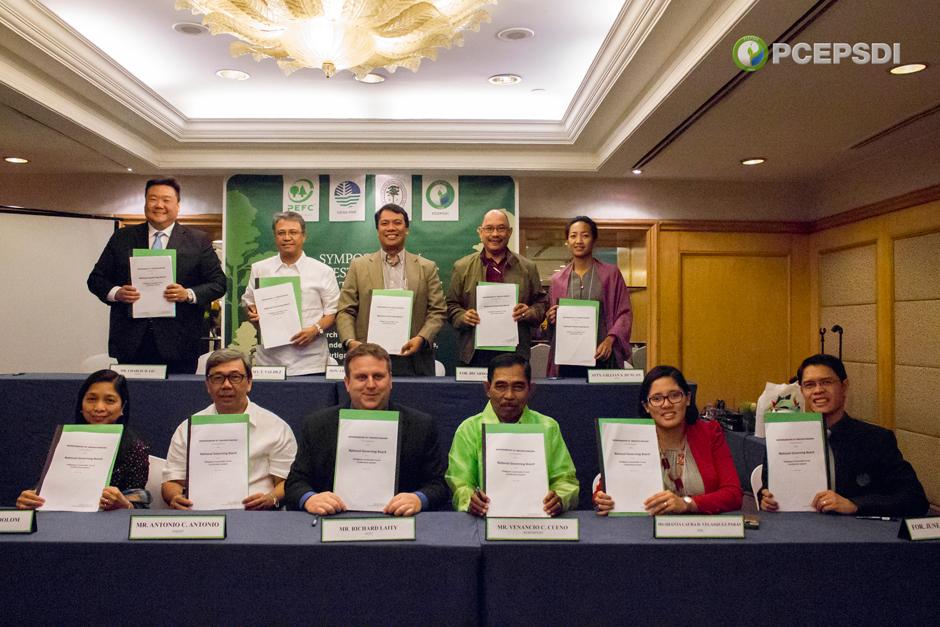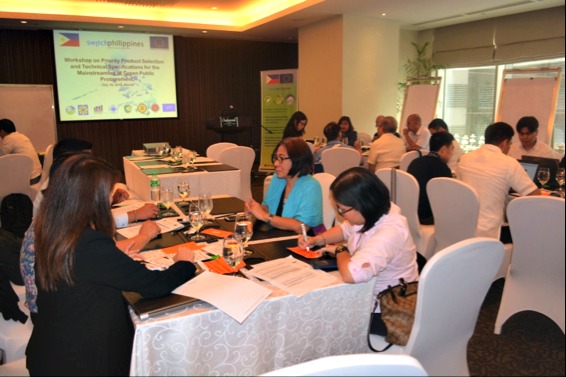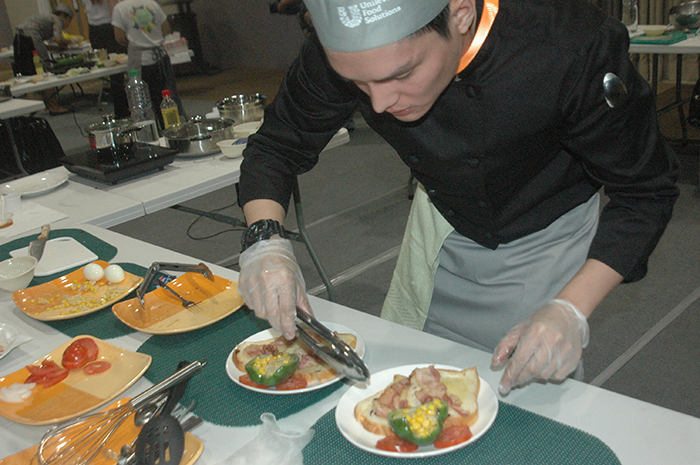GPP Task Force Completes the Advance Course Trainings for the GPP for Quezon City Project on August 9 & 10, 2018
Quezon City’s Green Public Procurement (GPP) Task Force Completes the Advance Course Trainings for the GPP for Quezon City Project – a 10YFP SPP Programme Photo © Pauline Abello /PCEPSDI PCEPSDI Executive Director Mr. June M. Alvarez and Programmes & Project Director Engr. Maureen Grace V. Lebria with the GPP Taskforce and GPP4QC Project Team Quezon City’s inter-department GPP Task Force has completed the last capacity building training towards green purchasing on a local government setting on August 9-10, 2018 held at St. Giles Classic Hotel. The GPP Taskforce was formed to implement the GPP4QC Project activities and to provide necessary information to deliver project results that can be replicated in other local government unit. The series of training for the GPP Taskforce aims to guide them through the discussions on factors affecting the deterioration of the environment, it’s ill impact to the community and what the Taskforce can do about it, being the core group of the Green Public Procurement (GPP) initiative of Quezon City. The GPP Taskforce have gone through awareness seminars, trainings and workshops that will help them reduce Greenhouse Gases (GHG) in line with the Quezon City’s commitment to Deadline 2020, a response to the C40 Cities to the Paris Agreement, it aims to reduce GHG emissions through low carbon projects. The four Advance Course Trainings was spearheaded by the Philippine Center for Environmental Protection and Sustainable Development, Inc. (PCEPSDI) in partnership with Quezon City Local Government through the Environmental Protection and Waste Management Department (EPWMD), co-implementers of the UN Environment 10 Year Framework of Programmes (10YFP) on Sustainable Consumption and Production (SCP) for Sustainable Public Procurement (SPP) Project entitled “Establishment of Green Public Procurement (GPP) for Quezon City fir the Promotion of Sustainable Consumption and Production (SCP) in the Philippines” dubbed as the GPP4QC Project. As the project targets to establish and implement a GPP Program in Quezon City and present the programme in an LGU setting. It also targets to develop a Policy Guideline and Framework, and to develop green products specification that can be used in purchasing products and contracting services for the local government. Following Quezon City’s priority, the policy guideline and framework is on-going and being reviewed by the Quezon City stakeholder. While the GPP4QC prioritized four products with the highest impact in terms of GHG reduction which includes food packaging, event, computers and laptops, and auto vehicles. The GPP4QC at its closing phase and the continuation of the Green Procurement Project for Quezon City lies on the hand of the GPP Taskforce. The Philippine Center for the Environmental Protection and Sustainable Development, Inc. (PCEPSDI) has offered assistance to the Taskforce on their GPP initiative even after the implementation of the GPP4QC Project. The organization hopes that even the project closes, the GPP initiatives’ achievement on the implementation of the GPP4QC Project will flourish and continue towards its purpose to promote green purchasing and Sustainable Consumption and Production (SCP) in the country. To know more about the Green Public Procurement (GPP) Updates please like our Facebook Page https://www.facebook.com/PCEPSDI/ and search for the #GPP4QC or message us at gpp4qc@gmail.com.
